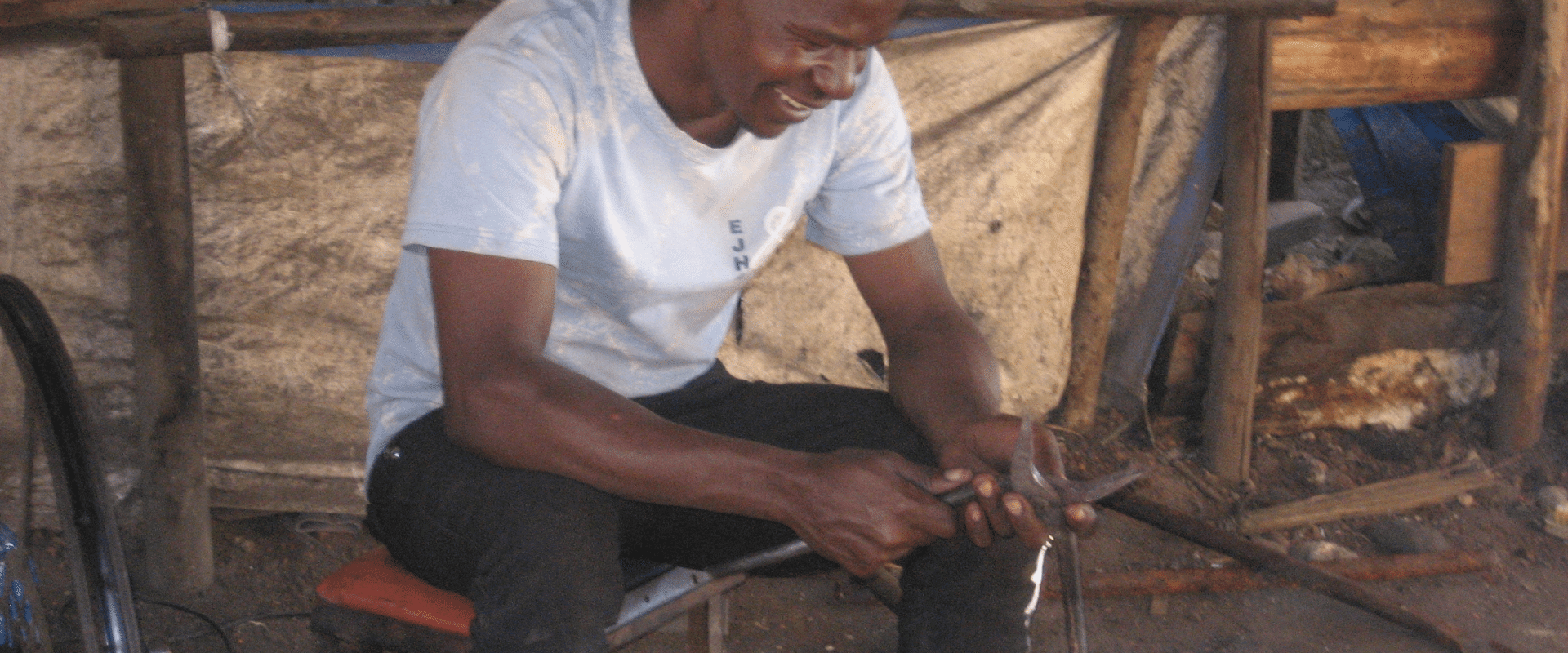In January 2021 Tools For Solidarity went on a field trip to Tanzania. The main goal of the trip was to set up the NASTC Project in Njombe, a town located in the Southern Highlands of Tanzania. The decision to establish a centre focused on tools as well as sewing machines followed the discovery of a huge demand in the area for good-quality tools for carpentry, blacksmithing, building and furniture making. The project officially started at the end of 2020. NASTC, like the Mwanza centre is also based on the cooperation between TFS and the Tanzanian organisation SIDO (Small Industries Development Organisation).
Aim of the Project
The project supports and develops programmes in rural and urban areas of the Southern Highland Zone of Tanzania. The primary focus is to support artisans and tailors within both the Njombe and Ruvuma Regions. Tools for Solidarity supplies the centre with tools and sewing machines collected in Belfast. These are refurbished by the staff of the centre and made available for artisans to purchase.
NASTC aims to provide the necessary resources and skills for artisans and groups to improve their income generation capacity and to meet the challenges that they face in running small enterprises. In particular, the project targets those people within the community who face extra barriers to income generation: women, young people and people with disabilities.
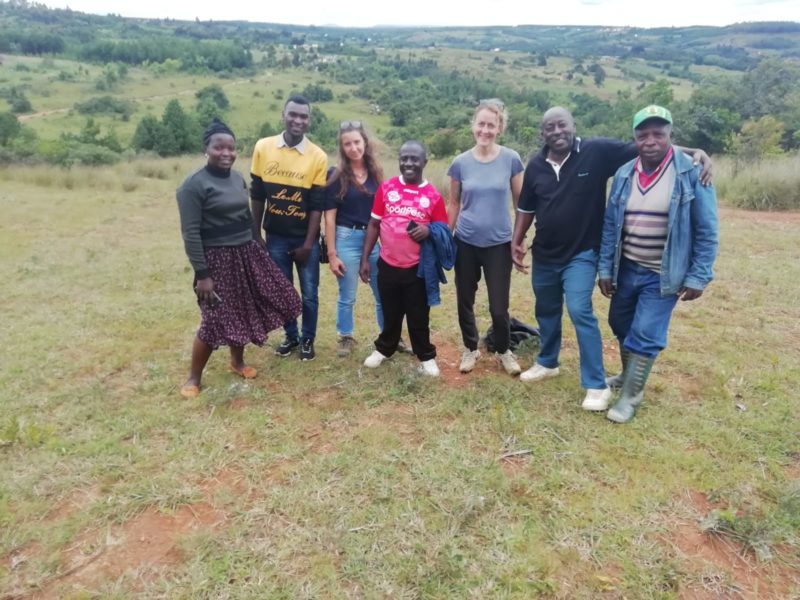
How does NASTC operate?
The centre employs 2 local people who were trained by TFS in sewing machines and tools refurbishment. They promote the activities of the centre in the rural districts within the Njombe Region and organise training for tailors in dress design, embroidery, business skills and sewing machine maintenance & operation. Since its opening and until December 2022 NASTC has provided 198 sewing machines, 1827 tools and 43 electric tools and 9 pieces of machinery. It has trained 130 people in week-long courses in sewing and business skills. The goal for the year 2023 is to allocate 165 sewing machines.
NASTC also promotes the production of locally made treadles for sewing machines. When artisans attend the trainings they can choose the type of machine to purchase (straight stitchor zig zag, electric or with treadle, …).
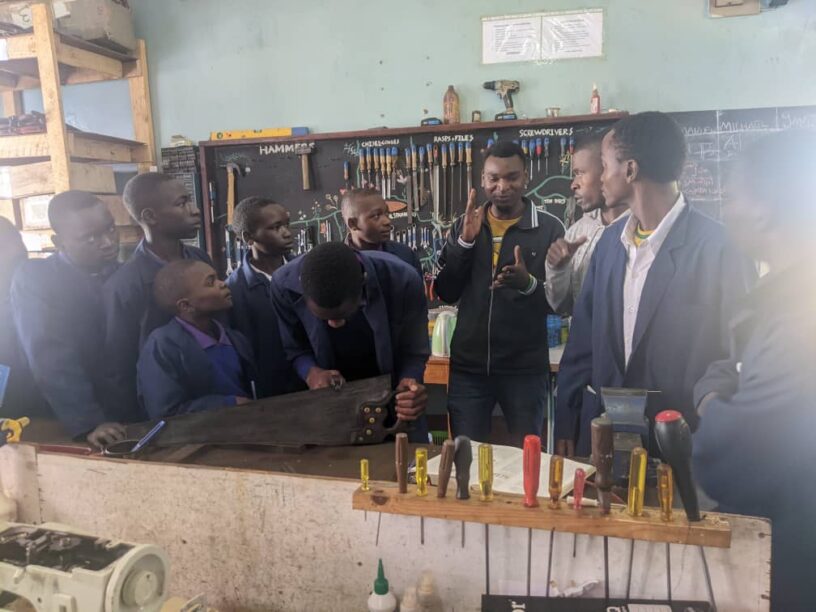
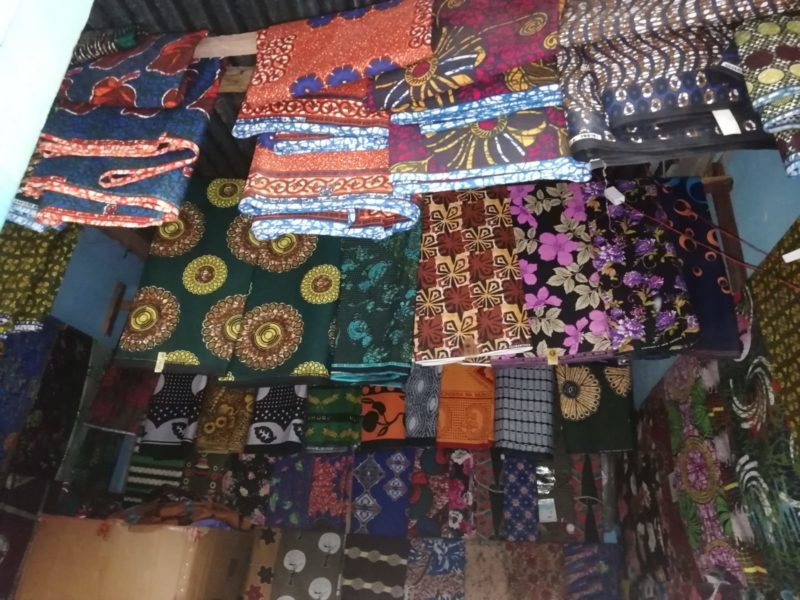
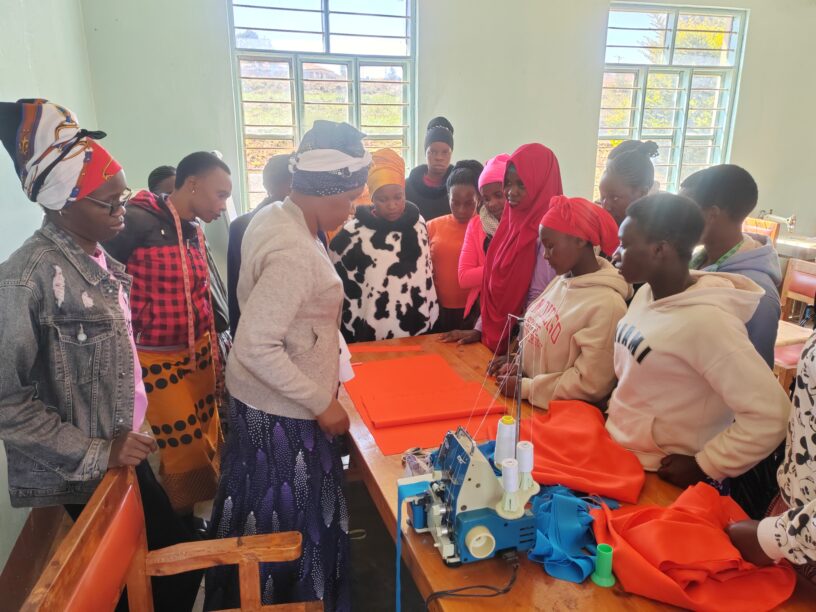
People with disabilities programme
One of NASTC’s specific goals is to provide support to the most vulnerable people within the community. These are people with disabilities (PWD) who face extra barriers to employment and income generation. Since the beginning of the project, 8 PWD received free sewing machines and training from the centre. The target for the year 2023 is to allocate 19 more machines.
In 2022, NASTC promoted a programme that allowed two young people with disabilities to attend a 1-year sewing course. Andrea and Doris graduated in November 2022. After that Doris received small capital to start her own business while Andrea won a scholarship to attend another 1-year course at the Vocational Training Centre (VTC). In 2023, two other people with disabilities were identified to take part in the same programme: Edmund and Anna.
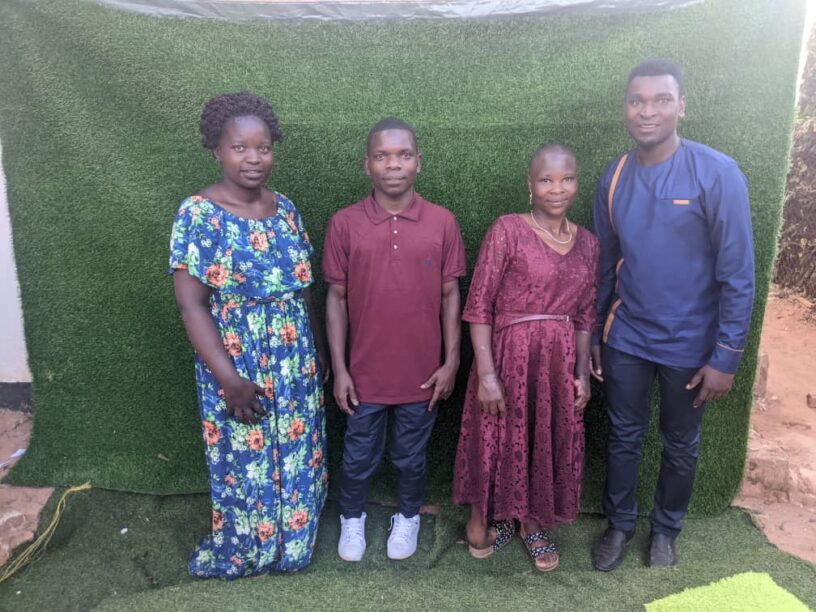
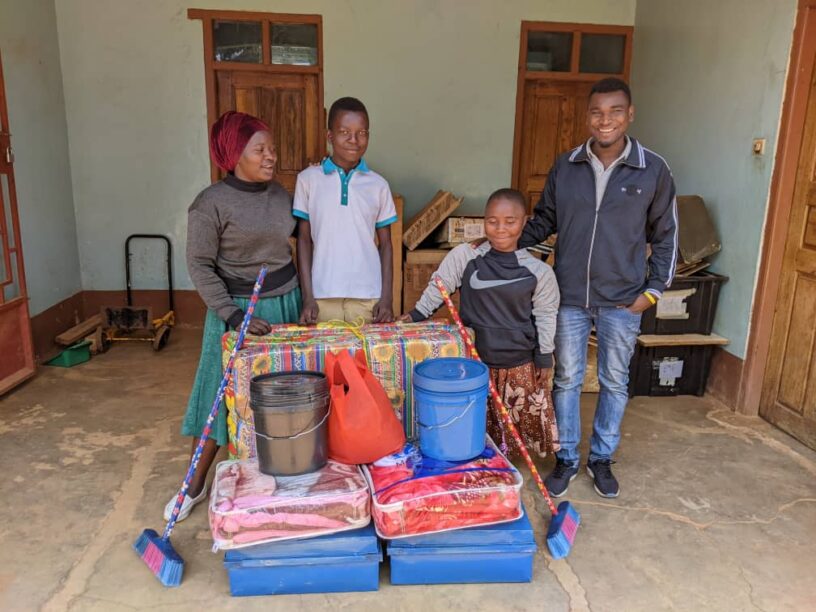
We will update this page accordingly to the new information we get from both parties. Meanwhile, you can check this page to know our latest news regarding the project. As for now we are happy to see the growth of our projects in Africa. Especially when we receive participants’ feedback from trainings.
